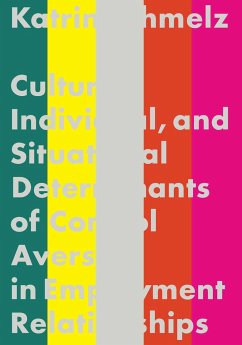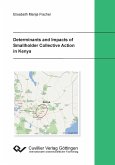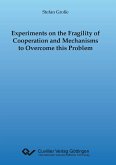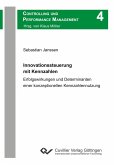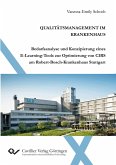This dissertation investigates the interaction between control and motivation in employment relationships. In a simple experimental setting, the agent chooses among effort levels after the principal determined the agent¿s choice set. Effort bears costs for the agent and benefits for the principal. The extent to which the principal restricts the agent¿s choice set corresponds to the level of control. Whether control is beneficial to the principal depends on the relative size of the disciplining and the crowding-out effects which are likely to vary with individual, situational and cultural conditions. The first study (Chapter 2) reports on a robustness check of the surprising findings by Falk and Kosfeld (2006) who show that hidden costs outweigh the benefits of control in anonymous principal-agent relationships. Our results largely confirm the existence of hidden costs of control, but they are usually not substantial enough to outweigh the benefits. Preliminary findings on the relationship between demographics and control aversion do not allow clear conclusions. The second study (Chapter 3) provides an experimental test of Frey¿s (1993) argument that control aversion increases with the closeness of the principal-agent relationship. This study also addresses methodological issues. We compare a laboratory and an internet implementation of a repeated principal-agent game where the principal can impose control at two different levels. Control aversion is stronger in the laboratory than on the internet, which confirms Frey¿s argument. The third study (Chapter 4) investigates whether the nature of politico-economic systems influences control preferences. In a large-scale internet study, we test the hypothesis that less individuals acquired control-averse preferences under the coercive regime of East Germany than under the liberal regime of West Germany. Indeed, control aversion is largely stronger among West Germans than among East Germans, and the differences are more pronounced for elder than for younger generations.
Bitte wählen Sie Ihr Anliegen aus.
Rechnungen
Retourenschein anfordern
Bestellstatus
Storno

